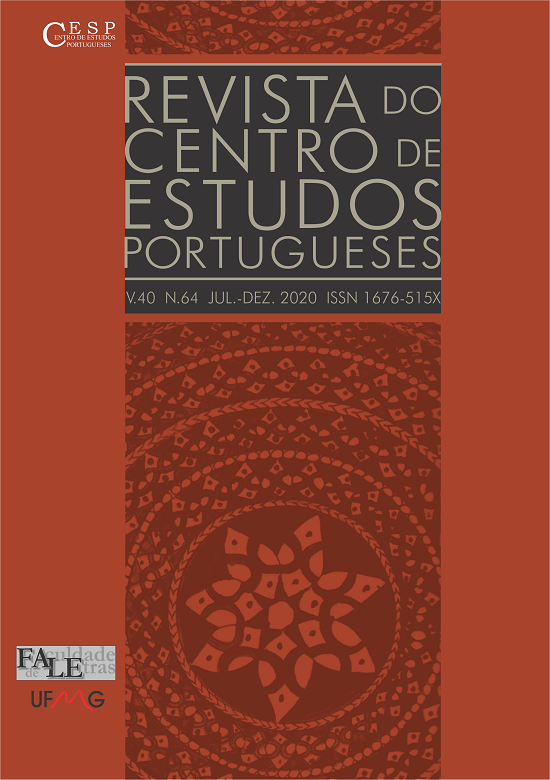Visita ou Memórias e Confissões: o filme-testamento de Manoel de Oliveira / Visit or Memories and Confessions: Manoel de Oliveira’s film-testament
DOI :
https://doi.org/10.17851/2359-0076.40.64.95-110Mots-clés :
cultura portuguesa, cinema português, posteridade, Manoel de Oliveira, Portuguese culture, Portuguese cinema, posterity, Manoel de Oliveira.Résumé
Resumo: Entendendo a representação do espaço doméstico como o abrigo da identidade do sujeito na obra de Manoel de Oliveira, este artigo pretende analisar o filme Visita ou memórias e confissões (1982) sob duas perspectivas: abordar brevemente a escolha programática de sua exibição post mortem e refletir sobre o espaço da casa enquanto domínio íntimo, o qual revela o homem e o artista. Ambos os aspectos são cruciais para que consideremos esse longa-metragem um filme-testamento. Apontamos ainda semelhanças entre esse filme e outros dois, os quais também mostram casas de vivência do cineasta português: O velho do Restelo (2014) e Porto da minha infância (2001).
Palavras-chave: cultura portuguesa; cinema português; posteridade; Manoel de Oliveira.
Abstract: Understanding the domestic space representation as the shelter of the self’s identity in Manoel de Oliveira’s oeuvre, this article aims to analyse the film Visit or memories and confessions (1982) under two perspectives: shortly approaching the programmatic choice of its post mortem exhibition, and reflecting on the housing space as an intimate domain that reveals the man and the artist. Both aspects are crucial to consider this feature film a film-testament. We still point out similarities among this film and other two ones, which also show the Portuguese film director’s living houses: The old man of Belem (2014) and Porto of my childhood (2001).
Keywords: Portuguese culture; Portuguese cinema; posterity; Manoel de Oliveira.










